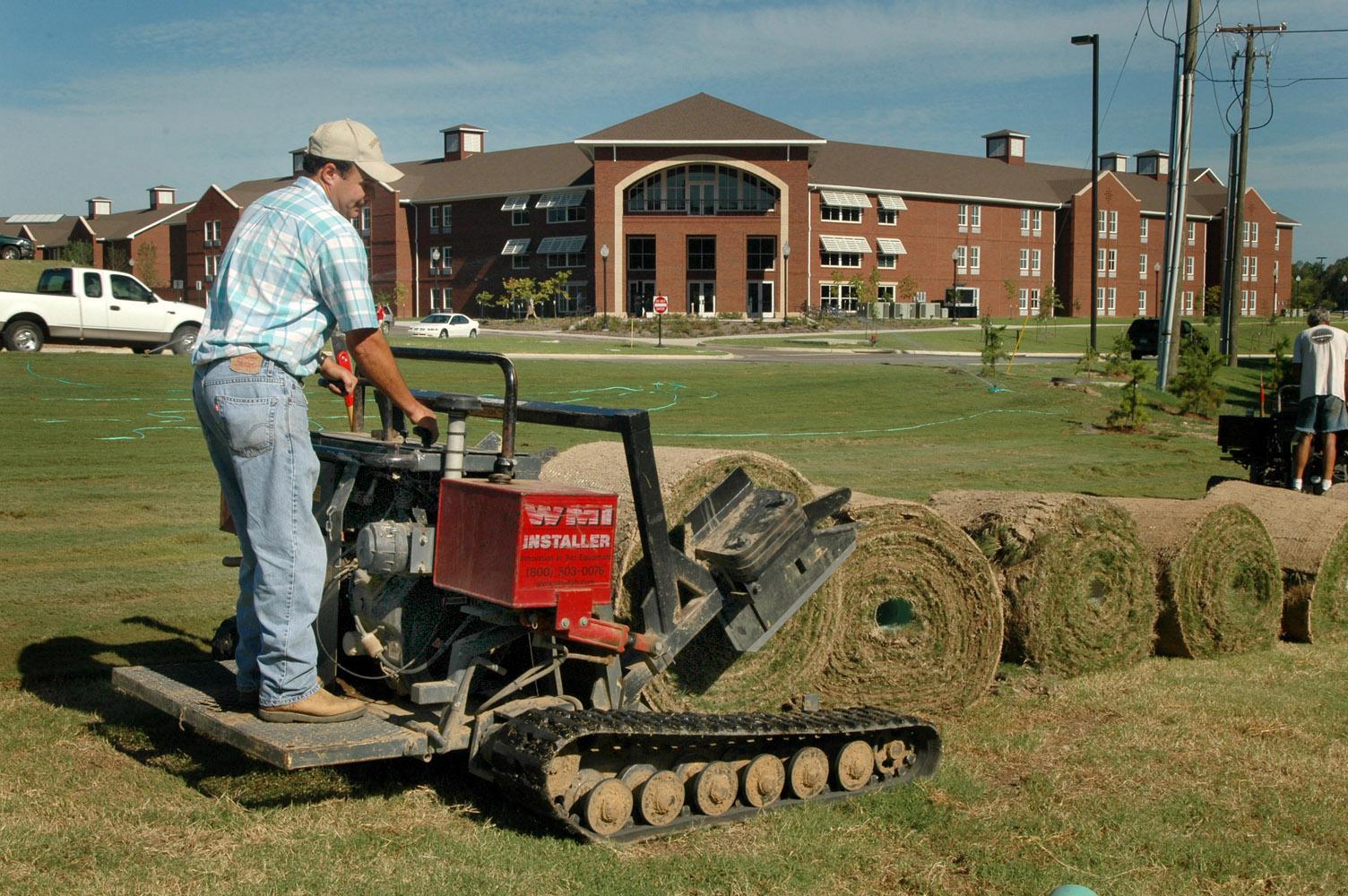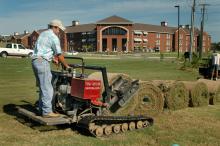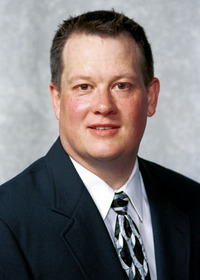Information Possibly Outdated
The information presented on this page was originally released on August 24, 2007. It may not be outdated, but please search our site for more current information. If you plan to quote or reference this information in a publication, please check with the Extension specialist or author before proceeding.
Sod demands decrease as water needs increase
MISSISSIPPI STATE -- Sod producers could not grow grass fast enough last spring to keep up with demand, but late-summer sales have plummeted because of enormous water demands during the hot, dry conditions.
Wayne Wells, turf specialist with the Mississippi State University Extension Service, said 2007 has been a good year for growing sod across the state, and sales were strong during the first months of the year. At the same time, water demands and energy costs have added to the cost of production.
“The hot, dry weather is not encouraging sod installation. Someone has to be attending to the water needs of newly installed sod constantly in these conditions,” Wells said. “It looks like new construction is slowing down, especially in north Mississippi, and that will decrease the demand for sod, too.”
The turf specialist said the state has about 5,000 acres in sod production. Prices went up about 10 percent to 15 percent in 2006 and have stayed there.
“Environmental conditions and in-put costs in 2007 have been very similar to 2006,” Wells said. “Growers have seen minimal insect and disease pressure this year, except in July when ample rains triggered an increase in disease development.”
Chris Hussey, owner of Hussey Sod Farm near Tupelo, said it was another dry year, but not as bad as last year when there was no break in the drought. Ninety percent of his farm is irrigated.
“We can water about two-thirds of the farm every two weeks. Center pivots water about 120 acres of the 450-acre farm, and traveling (water) guns cover the rest of the irrigated acres,” Hussey said. “The guns are labor-intensive to move, so some grass just has to wait in line for the water. The good rains in July provided a break in irrigation needs and helped grow some grass.”
Hussey said his farm sells sod year-round, closing only the week after Christmas.
“Just about every farm in north Mississippi ran out of Bermuda grass this spring. Sales only started slowing down in August,” he said.
John Cobb, owner of the Mississippi Grass Nursery in Hattiesburg, said the July rains were a welcome relief.
“We didn't have to turn on irrigation the whole month of July. I don't think that's ever happened before,” he said. “But it's a different story now, and irrigation needs have resumed.”
Cobb lost all his farm buildings when Hurricane Katrina hit two years ago. The first months after the storm, he did not sell any grass.
“But business bounced back and hasn't slowed down,” Cobb said.






